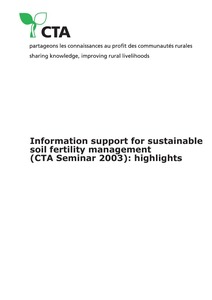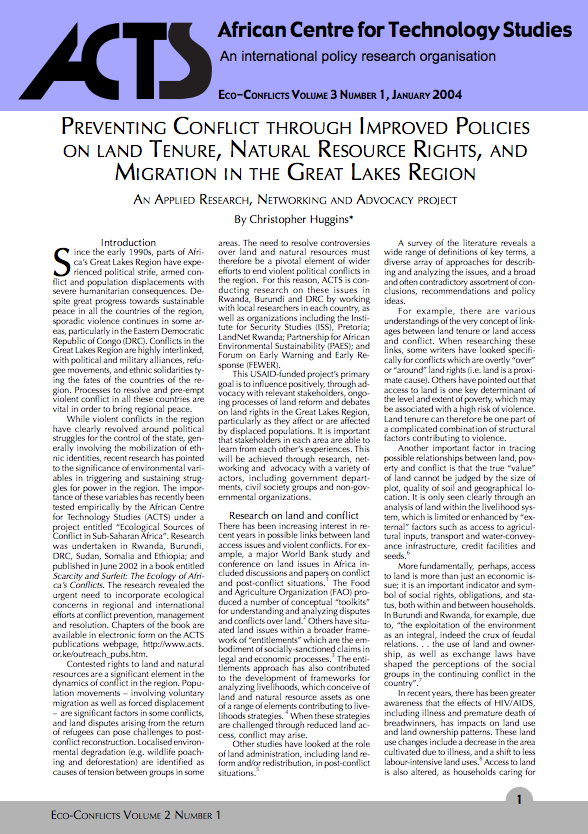This paper represents part of an area of work which analyses the linkages between rights to land and water. An initial scoping paper explored the interface between land and water rights (LSP Working Paper 10: Hodgson, S. (2004). “Land and water – the rights interface”). It is complemented by two…
Most of the world’s poor work in the “informal economy” – outside of recognized and enforceable rules. Thus, even though most have assets of some kind, they have no way to document their possessions because they lack formal access to legally recognized tools such as deeds, contracts and permits…
La Somalie est l'exemple d'un pays moderne dans lequel l'État central n'existe plus depuis de longues années. Bien qu'elle soit souvent décrite comme étant un pays chaotique et anarchique, une nouvelle forme d'organisation sociale s'y est mise en place depuis…
Afghanistan, Sierra Leone et Somalie : ces trois pays sont des États fragiles ayant des antécédents différents. L'auteur de cet article analyse ces exemples afin d'identifier les causes de leur situation, par exemple le rôle des identités ethniques, la revendication du pouvoir par des…
‘Poor soils make poor people, and poor people make soils worse’. This is a situation that can be seen in many ACP countries. What information support can be offered...
The 26 December 2004 earthquake and tsunami devastated the lives of millions. With considerable determination, local communities have joined national and international organizations and governments to bring relief and start the recovery work. FAO has been involved in assisting the affected…
This is the 19th of a series of Working Papers prepared for the Pro-Poor Livestock Policy Initiative (PPLPI). The purpose of these papers is to explore issues related to livestock development in the context of poverty alleviation. Livestock is vital to the economies of many developing countries…
The Global Forest Resources Assessment Update 2005 was specially mandated by the Committee on Forestry (COFO) during its meeting in 2003, where member countries endorsed recommendations from an Expert Consultation held in the Kotka, Finland in 2002 (Kotka IV). For this purpose, all countries…
Since the early 1990s, parts of Afri-ca’s Great Lakes Region have expe-rienced political strife, armed con-flict and population displacements withsevere humanitarian consequences. De-spite great progress towards sustainablepeace in all the countries of the region,sporadic violence continues in…
The report summarises the papers, presentations and discussions of a workshop on failures and achievements at securing women’s land rights. In particular, it addresses the following issues: Land rights and legal reforms,legal aid and land administration practice, women's land rights in an…
This publication is the result of a significant commitment by numerous individuals over the past two years. In particular, the Forestry Policy and Institutions Branch (FONP) of FAO has provided extensive support to the development and production of these conflict management cases.




